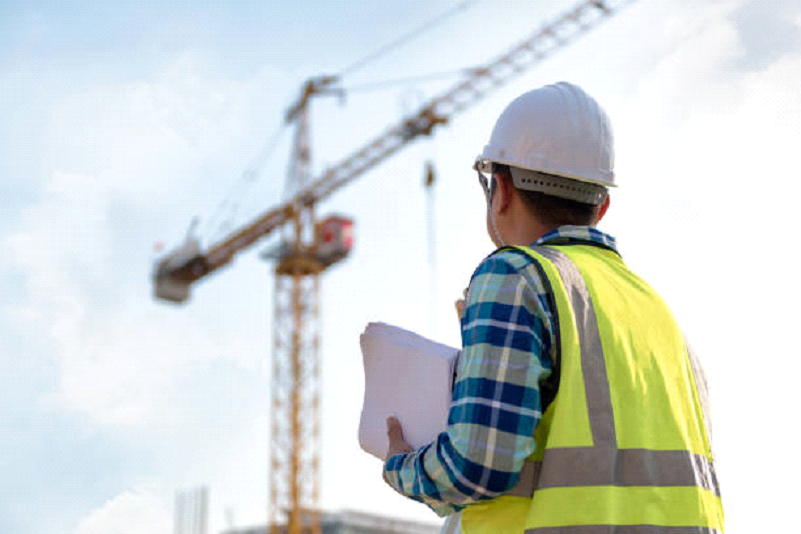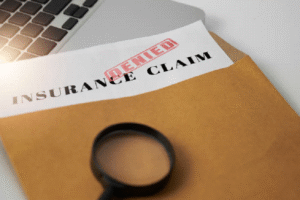A Practical Guide for U.S. Builders and Contractors
Whether you’re managing a small renovation or leading a major commercial build, every construction project comes with its share of risks. Property damage, equipment theft, accidents, legal claims—any of these issues can derail your timeline and finances fast.
That’s why having the right construction insurance isn’t just a good idea—it’s essential.
But with so many different types of coverage available, how do you know which ones are right for your business? In this guide, we’ll break down the key types of construction insurance you need to know about, why they matter, and how to choose the right policies for your next project.
Why Is Construction Insurance Important?
Construction is a high-risk industry. You’re working with expensive equipment, dangerous materials, tight deadlines, and multiple contractors on one site. A single mistake, accident, or lawsuit could cost you thousands—or even shut your business down.
Construction insurance helps you:
-
Protect your financial investment in the project
-
Stay compliant with state laws and client contracts
-
Avoid delays due to claims or legal disputes
-
Safeguard workers, subcontractors, and third parties
-
Keep your reputation intact when unexpected events happen
Whether you’re a general contractor, subcontractor, builder, or property developer, having the right coverage gives you peace of mind and helps your business grow safely.

Key Types of Construction Insurance (And Why You Need Them)
Here are the most important types of insurance policies in the U.S. construction industry:
1. General Liability Insurance
This is the foundation of any construction insurance package.
What it covers:
-
Injuries to third parties (e.g., a visitor trips over your materials on-site)
-
Property damage caused by your work
-
Legal fees and settlements if you’re sued
Why you need it:
Most clients and local governments will require this coverage before you can start work. It’s your first line of defence against lawsuits and liability claims.
2. Builder’s Risk Insurance
Also known as “course of construction” insurance.
What it covers:
-
Damage to the building under construction
-
Theft or vandalism of materials and tools
-
Losses from fire, wind, or storms (some natural disasters may be excluded)
Why you need it:
Construction sites are vulnerable. Until the project is complete and handed over, builder’s risk protects the investment—whether it’s your money or the client’s.
3. Workers’ Compensation Insurance
This coverage is legally required in most U.S. states if you have employees.
What it covers:
-
Medical expenses and lost wages for employees injured on the job
-
Legal costs if an injured worker sues you
Why you need it:
Construction is one of the most injury-prone industries. Workers’ comp helps you comply with labour laws and ensures your employees are taken care of after an accident.
4. Professional Liability Insurance (Errors & Omissions)
This is especially important for contractors involved in design, engineering, or consulting.
What it covers:
-
Design errors or omissions
-
Project delays caused by mistakes
-
Legal fees from claims of negligence or faulty advice
Why you need it:
If your professional input leads to costly mistakes—even unintentionally—you could be held liable. This policy protects your reputation and finances in those situations.
5. Commercial Auto Insurance
If your company owns or leases vehicles for business use, this is a must.
What it covers:
-
Vehicle accidents
-
Property damage
-
Medical costs
-
Legal expenses
Why you need it:
Standard personal auto policies typically don’t cover vehicles used for business. Construction trucks, vans, and trailers need commercial auto insurance for full protection.
6. Equipment and Tool Insurance
Also known as contractor’s equipment insurance.
What it covers:
-
Theft or vandalism of tools and heavy machinery
-
Damage due to accidents, fire, or extreme weather
-
Transit coverage while moving equipment between sites
Why you need it:
Your equipment is your lifeline. Without proper coverage, a stolen backhoe or damaged scaffolding could halt your project and leave you paying out of pocket.
7. Contractor’s Pollution Liability Insurance
Environmental damage can be a huge liability—and many standard policies exclude it.
What it covers:
-
Clean up costs for hazardous spills or contamination
-
Lawsuits from third parties affected by pollution
-
Defence costs related to environmental claims
Why you need it:
Even if your work doesn’t seem high-risk environmentally, one accidental spill or improperly handled material can trigger big fines and lawsuits. This coverage helps avoid financial disaster.

Tips for Choosing the Right Construction Insurance
Selecting the right policies doesn’t have to be overwhelming. Here are some practical tips to help you make smart decisions:
✅ Assess the Scope of Your Projects
A small residential contractor will need different coverage than a commercial builder handling multi-million-dollar developments. Larger or more complex projects generally require higher policy limits and broader coverage.
✅ Understand State and Local Requirements
Most states have minimum insurance requirements for contractors, especially for workers’ comp and liability coverage. Always check what’s legally required in your area and by your clients.
✅ Review Policy Exclusions Carefully
Not all policies are created equal. Some may exclude common risks like certain natural disasters, theft, or subcontractor work. Read the fine print and ask your insurance provider about exclusions.
✅ Bundle Coverage for Better Rates
Many insurers offer package policies tailored for contractors. These bundles often come with discounted rates and can simplify management of your insurance paperwork.
✅ Work With a Specialist Broker or Agent
An insurance agent who understands the construction industry can guide you through coverage options, spot gaps in your protection, and help you compare prices across carriers.
Bonus Tip: Consider Project-Specific Insurance
Sometimes, it makes sense to get coverage for a specific job rather than your entire business.
Examples include:
-
Owner-Controlled Insurance Programs (OCIPs): Where the project owner purchases one policy to cover all contractors.
-
Project-Specific Builder’s Risk or Liability: Ideal for one-off or short-term jobs.
This can be more cost-effective and tailored to the risks of a particular site.
Final Thoughts
The construction business is filled with opportunity—but also with risk. Without the right insurance coverage, one accident, lawsuit, or equipment loss could derail everything you’ve worked so hard to build.
By understanding the different types of construction insurance—like general liability, builder’s risk, workers’ comp, and more—you can protect your business, your workers, and your bottom line.
So before you break ground on your next project, take the time to:
✅ Review your current insurance coverage
✅ Understand your legal obligations
✅ Consult with an insurance pro who knows the construction field
Being insured isn’t just about compliance—it’s about confidence and continuity. When you’re properly covered, you can focus on doing what you do best: building great things.





